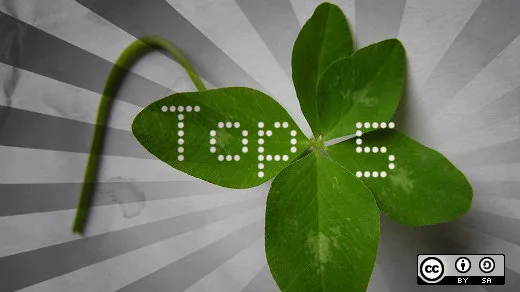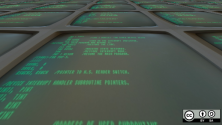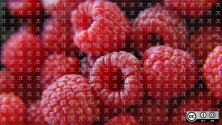In this edition of the Top 5, we've got reading the FINE manual, Python for non-engineers, the meaning of openness, and more.
Heads Up
Next week, we'll kick off a series on Open Hardware—it will run from May 18 - 22. See what else we're doing the year.
Sign up for All Things Open! This awesome open source conference runs from October 18 - 20 in Raleigh, NC.
Top 5 articles of the week
#5. Open source has to be more than Linux
Jono Bacon writes for his column, Six Degress, this time about the meaning and implications of "openness." One of the many quotes that grabbed my attention is this:
"Whether it was Linus Torvalds' first kernel, the first incarnation of Wikipedia, the first Raspberry Pi board, or anything else, the world's greatest innovations all started with that one person just making something. What transforms a hack into something with potential is that it is (1) shared freely, (2) formulated with free tools that anyone can access, and (3) invites participation from other people who can make the hack better."
#4. 3 big lessons I learned from running an open source company
Grant Ingersoll is the CTO and co-founder of LucidWorks, a venture-backed open source company. He writes about his experience building LucidWorks from the ground up, including tips for what to sell, when to support, and how to manage the commuity.
#3. Why tools like Docker, Vagrant, and Ansible are hotter than ever
Greg DeKoenigsberg is the Vice President of Community for the automation tool Ansible, and writes that tools that allow people to speak the same language are seeing success right now. Read more about the success of Docker, Vagrant, and Ansible in this article.
#2. Practical Python programming for non-engineers
Al Sweigart is a software developer and tech book author who writes that "just because we’re surrounded by computers doesn’t mean the average person needs to be able to reprogram their smart fridge." He goes on to say that, yet, as the age of the Internet of Things is upon us, if we want to custom our stuff, it will be good to know a little programming. For that, he turns to Python. Get educated, just a little, with this article.
#1. RTFM? How to write a manual worth reading
Let's start with what RTFM stands for: Read The Fine Manual, is a phrase the author of this article, Rich Bowen, says is "uttered at people who have asked a question that we, the enlightened, feel is beneath our dignity to answer, but not beneath our dignity to use as an opportunity to squish a newbie's ego." RTFM applies, for one, to the documentation needed for software projects. Many see it as a necessary evil because it's not a fun job, but someone's got to do it. Maybe the misunderstanding is that no one wants to do it though, says Rich. Add this good read to your list.







2 Comments